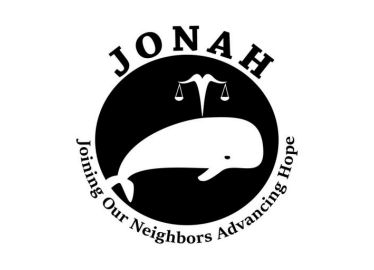By Pat Mertens, Trinity Lutheran Member, Environmental Task Force Member, and Interfaith Committee Leader
A few months ago, prompted by discussions at the Environmental Task Force Meetings, 6 women from 6 area churches gathered for a cup of coffee to meet and talk about “Green Teams.” Introductions began with folks sharing their name, church affiliation, and what is happening at the church regarding green teams and sustainability efforts.
One person stated they were there to learn about how to start a green team. She was almost apologetic about not having much to report. Another person stated that a green committee had finally gotten approval after 3 years, and then talked enthusiastically about how they would begin by making plans for reducing single plastics. Another woman shared that their church has had a green team for several years and they were required to get accredited every year. The organizer of the gathering mentioned that she was granted a request to form a green committee and was working hard with maintenance to try a better way to separate recycling. The meeting was a positive experience and everyone left with a feeling that we were going to begin a new partnership in which we would share ideas that would help churches to form green teams and strengthen existing ones.
The next coffee gathering of the Interfaith Green Team brought in a few more churches who introduced themselves and talked about their Green Team or the desire to form one. They shared thoughts about good sources of information on earth stewardship and sustainability through books, speakers, and community organizations or events. All “Green Teams” are asked to give any updates. The meetings also offer an opportunity to discuss some of the difficulties implementing change. There was consensus that change occurs slowly and that small steps are better than big ones.
Then came the Niagara Water Bottling Proposal which took the next Interfaith Green Team meeting on a dynamic all of its own. It resulted in strong discussion about how this would affect the environment as regards plastic waste and what effect it would have on our community water resources. The atmosphere took on a unified front of how this Interfaith Team could respond. There was a discussion of whether a forum could be arranged at a church. In the end, there was not enough time to set up a forum and the city was going to provide one. This reaction by the Interfaith Group lends itself to the possibility that at the right time under the guidance of the Environmental Task Force of JONAH, they could have a voice that would likely have an impact.
Right now, the Interfaith Green Team is just beginning to form a partnership of churches with a goal to hold monthly meetings and to support and strengthen green teams through sharing ideas and activities.
This effort reveals two things:
- Churches have an important role in promoting sustainability and earth stewardship. As people of faith, we are protecting God’s Creation.
- We are not alone with the work we want to do, and by connecting on one’s personal idea or struggle with someone else bigger, better things can happen.

